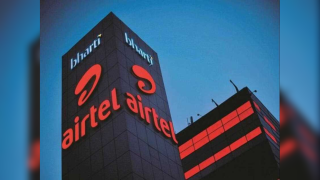Its report, Calling for a Just, Clean Transition, identifies T-Mobile US – largely owned by Deutsche Telekom – as the greenest of the three main operators (see graphic), with AT&T at the bottom.
Dan Howells, climate campaigns director at Green America, said: “It is encouraging that the big telecoms are making progress in adopting renewable energy to protect the planet. Yet, T-Mobile, Verizon and AT&T all could be doing more to put new wind and solar power on the grid. And all three companies need to use their market power to advance energy justice and protect communities as well.”
The report points out that “AT&T, Verizon, and T-Mobile collectively use as much energy as all the households in [New York City] each year.” The city has a population of 8.4 million.
The 40-year-old campaign said it is calling on the three to “commit to 100% renewable energy that puts new solar or wind on the grid by 2025”, and “ensure that their renewable energy purchases advance energy justice”.
Report author Elizabeth Silleck La Rue said: “Systemic inequities won’t reverse themselves. It will take genuine, intentional, and sustained effort to create a renewable energy industry that fairly distributes decision-making power, benefits and burdens.”
The campaigners say they are picking on telecoms because “in 2021, AT&T had $168 billion in revenues, Verizon $133 billion, and T-Mobile $80 billion”, and. “with these revenues, paired with their massive energy use, the companies have a great deal of influence over how electricity is generated and used”.
Their report adds: “They also have a great deal of responsibility to the communities they serve and those where energy impacts are highest. If this energy is produced from fossil fuels, it results in mining and drilling, polluting power plants, toxic wastes, and pipelines in vulnerable communities who therefore bear the brunt of the pollution created to power these companies.”
It’s not just energy they are worried about. Telecoms companies should “strive for a minimum of 30% subcontracts within the next five years to be with minority- and women-owned or managed companies”. They should publish reports “on progress in achieving this goal”. They note: “The clean energy sector is advancing, while perpetuating existing inequities in economic opportunity.”
And the industry should “incorporate diversity, equity, inclusion, justice and belonging throughout its workforce and across leadership roles”, they add. Or, they “must have stated goals to increase diversity and reform culture in the sector with measures for accountability”.
Energy companies, they say, should be advancing toward truly inclusive and equitable workplaces internally, including accountability measures, to support progress in a traditionally male and white-dominated industry.
Silleck La Rue said: “Where the fast-growing and increasingly critical telecommunications and renewable energy industries intersect, there’s an opportunity to level the notoriously imbalanced power dynamics that plague the energy sector. Let’s take it.”






